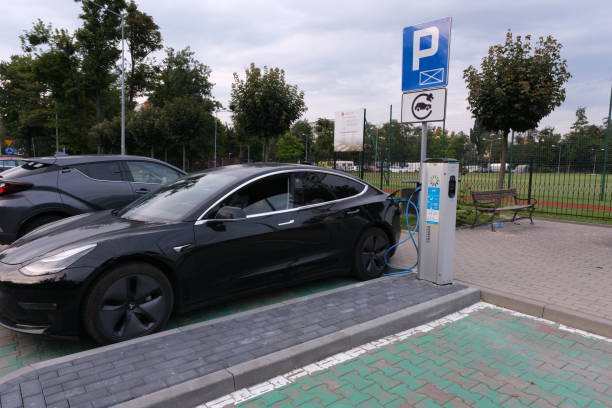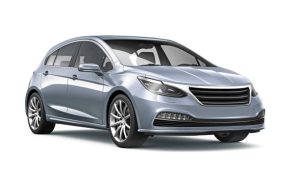
The CES is kicking off in Las Vegas, and today marks the launch of a brand-new Chinese electric car.
The executive team of Byton has unveiled what they call their “smart-intuitive vehicle,” a fully electric SUV that features a futuristic dashboard.
Byton’s CEO Carsten Breitfeld said to Entrepreneur that the company aims to be the leader in smart mobility in the future.
The brand wants to convey that it is less concerned with driving and more focused on the experience of the passengers.
The dashboard’s massive display of 49 by 10 inches allows everyone to view the content. The steering wheel, which is the part that most closely resembles the traditional car, also has an 8-inch touchscreen. The name Byton is derived from “bytes on wheel.”
Interior tech includes voice and gesture controls and can identify drivers, their preferred seat, and temperature preferences even across vehicles. The vehicle will have 5G connectivity and can drive 400 miles with a single battery charge. It will also reach 80 percent in 30 minutes.
Face and emotion recognition, as well as machine learning, will allow vehicles to adapt themselves to their users (e.g., unlocking doors). Unlocking doors). The car will be able to communicate with other Byton vehicles and sense its surroundings.
Breitfeld, along with fellow industry veteran Daniel Kirchert, co-founded Future Mobility Corp in 2016. The company is now the parent of the brand. The vehicles are expected to sell for approximately $45,000 and will be available on the U.S. market by mid-2020.
The company has so far raised over $300 million in seed and series A round and is planning to close series B this quarter. It opened its North American headquarters last month in Santa Clara (California) to accommodate up to 300 employees. Apple, Audi, BMW, Delphi, Ford, Google Mercedes, Tesla, Toyota, and other U.S. companies have recruited U.S. employees.
In addition to its headquarters in Nanjing, China, the company has offices in Munich and Germany. The company plans to build a factory in Nanjing by next year to produce 100,000 SUVs. It has secured the high-profile suppliers Bosch, Faurecia, and others to create its high-tech interior.
Byton’s debut at CES 2018 brings back memories of the hype surrounding another electric vehicle startup in 2017, Faraday Future. A demonstration of the FF 91 self-parking feature was unsuccessful by this company. Faraday Future also has its share of financial failures and leadership challenges. A Nevada regulator compared the company to a Ponzi scheme. By the end of 2017, Faraday Future’s CTO, CFO, and VP of Design had all quit.
Breitfeld declined to comment on Faraday Future but noted that Byton “first of all, the approach is to create an affordable car.” He continues: “Most importantly, we built this company so that our investors put the money in, but we, as a management group, run the company. No single investor has control over decisions or the ability to make them. “We as a team have the vision, expertise, and business plan.”
The government’s and society’s willingness to adopt electric, self-driving cars in the U.S. will be the biggest hurdle. Breitfeld says that’s why the brand will launch in China first. The government prioritizes the infrastructure for electric and autonomous vehicles.
Byton intends to sell directly to consumers and through showrooms run by third-party agents. The brand plans to launch two more vehicles by 2022: a multi-purpose vehicle with seven seats and a sedan. But the company’s vision goes beyond cars.
Breitfeld says, “We named the company Future Mobility Corporation and not Future Car Corporation when we founded it.” In ten years, we will probably offer mobility services on the basis of our product in addition to selling it. We aim to be the leading company for creating smart living environments and providing services.





